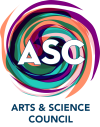Cultural Equity Statement
- Systemic, inequitable access to opportunity has led to generations of unjust outcomes for those who have been historically marginalized in mainstream arts and cultural funding, discourse, leadership and resource allocation.
- Inequity – based on, but not limited to, race, ethnicity, socioeconomic status, geography, educational status, ability, gender, sexual orientation, gender identity, age, religion, immigrant status, language, family structure and physical appearance – must be continually addressed and changed.
- Cultural equity is critical to the long-term viability of the arts and cultural sector.
- Despite the efforts of many people who have focused on equity in various forms for decades, Charlotte-Mecklenburg has significant work to do in this area.
- Everyone has cultural traditions that are inherently valuable.
- Inequity – based on, but not limited to, race, ethnicity, socioeconomic status, geography, educational status, ability, gender, sexual orientation, gender identity, age, religion, immigrant status, language, family structure and physical appearance – must be continually addressed and changed.
- Cultural equity embodies the values, beliefs, policies and practices that ensure all people are represented in the: Development of arts, science, history and heritage policy; Support of artists and cultural creators; Nurturing of accessible, relevant, and innovative venues for expression; and, Just distribution of programmatic, financial, and informational resources.
- Champion policies and practices that empower an inclusive and equitable community to support the role of all arts, science and history providers in achieving cultural equity.
- Embed a commitment to cultural equity in all ASC investments, governance and administrative policies and practices.
- Commit to continual agency-wide honest reflection, dialogue and evaluation about diversity, inclusion and equity that leads to organizational change and report annually on our progress.
ASC Cultural equity statement background & process
ASC’s Community Investment Committee, composed of (7) ASC Board members and (5) non-members who are broadly representative of the Charlotte-Mecklenburg Community, drafted the initial Cultural Equity Statement for ASC in FY19 with the goals of crafting a working definition of cultural equity to guide the future work of ASC, creating a framework to set organizational policies and practices and providing external visibility for the organization’s commitment to cultural equity.
The Equity Statement was approved by the ASC Board on June 19, 2019.
CULTURAL EQUITY REPORT
ASC’s second Cultural Equity Report updates the Charlotte-Mecklenburg community on its journey on the path to cultural equity.
ASC began its cultural equity journey in 2015. In June 2019, ASC’s Board of Directors adopted a Cultural Equity Statement to create a framework for organizational policies and practices and provide external visibility for the organization’s commitment to cultural equity. ASC’s inaugural report, released in February 2021, outlined ASC’s extensive efforts to make its funding more reflective of the Charlotte-Mecklenburg community after its history of inequitable funding. The report also documented ASC’s work to dismantle inequitable systems and policies within ASC and its progress, through fiscal year 2020, on the “We Will” commitments listed in the statement.
This second report provides an update on the work ASC said it would focus on in fiscal year 2021 (July 1, 2020–June 30, 2021).
Cultural Equity Language Bank
ASC’s language bank serves to define and explain the language ASC staff uses in our cultural equity work. ASC commits to clarifying the use of any acronym or identity term where appropriate. We also commit to asking individuals to self-identify to establish equitable and inclusive language.
Beyond the Sound Bites
ASC hosted Beyond the Sound Bites with the goal of sharing ASC’s equity journey, listen to residents’ feedback and incorporate that learning into ASC’s work. Below is the recording of the session hosted by Dr. Tom Hanchett, historian, History South and Janeen Bryant, director of operations, Center for Racial Equity and Education.

